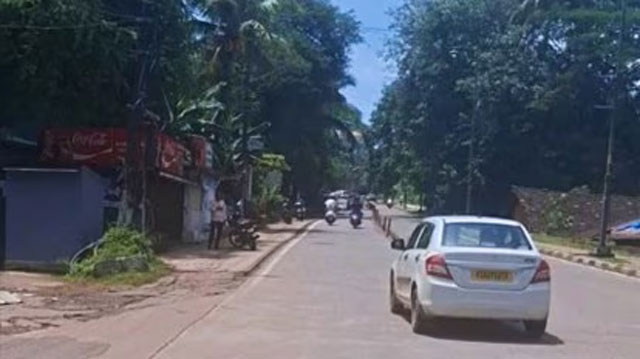Daijiworld Media Network – Panaji
Panaji, Nov 16: The long-running battle between traditional taxi operators and app-based cab services has once again cast a shadow over Goa’s tourism image, with fresh incidents of tourist harassment surfacing and the government warning that the situation is spiralling out of control.
A German tourist recently posted a video alleging he was harassed by taxi and rickshaw operators in Canacona after he tried booking an app-based cab. Police later assured him they were taking the matter “seriously”. A month earlier, a Mumbai tourist walked over a kilometre with her luggage in Varca after her app-based driver refused to pick her up from her hotel, fearing attacks from local unions.

Tourism Minister Rohan Khaunte issued a strict warning this week, saying “dadagiri will not work”. Accepting that Goa’s tourism is suffering, he said the taxi system has to be brought under control and blamed a few “troublemakers” for creating fear among visitors. He urged MLAs to rise above vote-bank politics tied to taxi unions, reminding them that Goa “cannot kill the hen that lays the golden eggs”.
For years, tourists have complained of exorbitant fares charged by local taxis, often higher than the cost of a flight to Goa. Taxi unions have opposed the entry of Ola and Uber, claiming they threaten Goan livelihoods. Though the state launched its own app-based service GoaMiles in 2018, clashes between its drivers and local operators continue. Goa now has two local aggregators — GoaMiles and Goa Taxi App.
GoaMiles CEO Utkarsh Dabhade said harassment incidents have reduced in recent times due to police intervention and coordination with unions. He said all GoaMiles drivers are Goans and that efforts are ongoing to ensure safe and smooth travel for tourists.
Traditional taxi operators argue that Goa doesn’t have the demand to justify app-based fleets and fear being pushed out. “App taxis work in metros, not here,” said Abhay Kandolkar from Candolim, accusing app drivers of poaching passengers outside resorts. He insisted uniform fares are the only way to avoid conflict.
Many drivers see themselves as custodians of Goa’s tourism legacy. Veteran taxi driver Sairo Tarasco, whose family has been in the business since the 1960s, said they operate through an unwritten system of cooperation built over decades. “We are the ambassadors of tourism, not a mafia,” he said, blaming app-based undercutting for the chaos.
Despite government appeals to join digital platforms to ensure transparency, many drivers remain reluctant. One GoaMiles driver said he quit after his car tyres were punctured and he was threatened outside a South Goa hotel. “I was scared they would attack me,” he said, now driving a rental vehicle instead.
With tensions simmering and tourists increasingly caught in the middle, the government faces mounting pressure to restore order to one of Goa’s most contentious sectors.